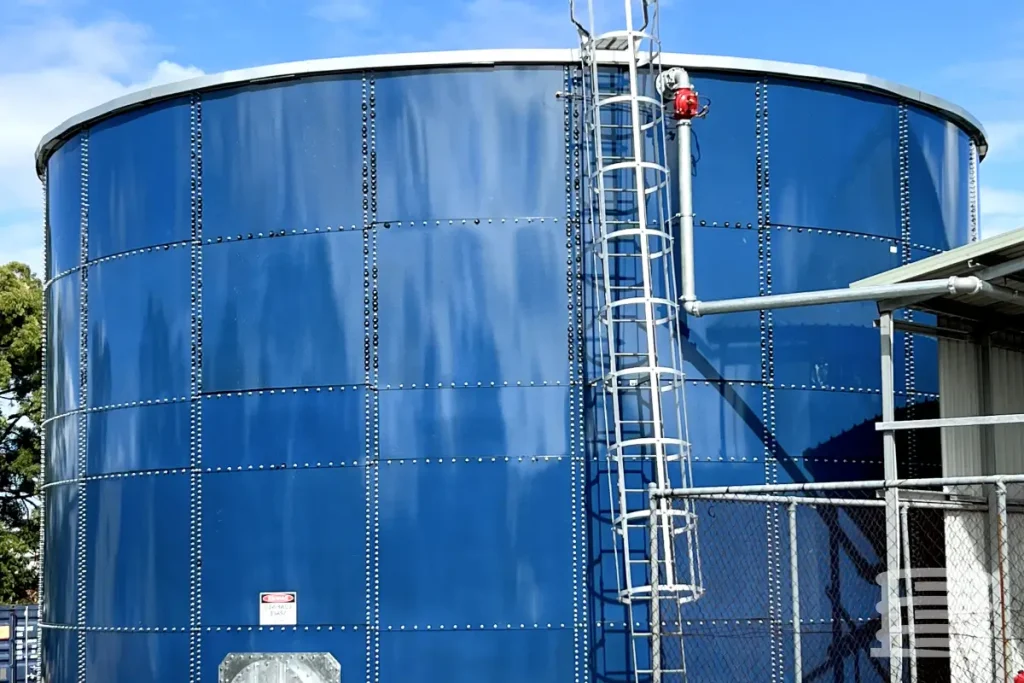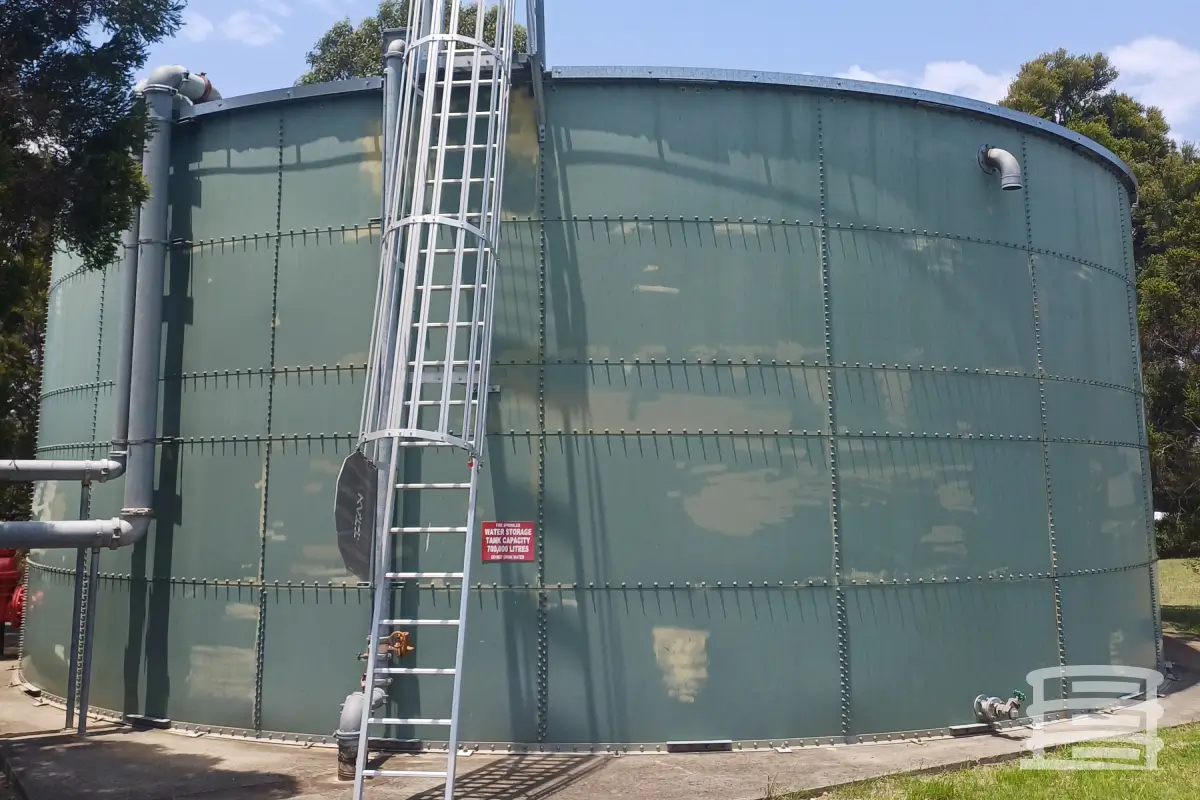Industrial water tanks play a critical role in various businesses and organizations, providing a reliable water source for diverse industrial operations. Like any other equipment, these tanks require regular maintenance to ensure optimal performance and longevity.
Regular Tank Cleaning
Regularly cleaning your water tank, preferably twice a year, is vital to prevent the accumulation of sediment, rust, and bacteria. Built-up debris can cause blockages, reduce water flow, and lead to potential contamination.
Check for Leaks
Regularly inspect your water tank for leaks and promptly repair any identified issues to prevent further damage. Leaks not only waste water but also pose risks of structural damage.
Insulate Your Tank
Applying insulation to your water tank can help conserve energy by reducing heat dissipation. Additionally, insulation helps prevent condensation, which can contribute to corrosion and premature deterioration of your tank.
Regular Maintenance
Routine maintenance conducted by a certified technician is essential to ensure the optimal performance of your water tank. A technician can inspect valves and connections, perform cleaning and flushing procedures, and identify any potential leaks.
Ways to Keep Water Storage Tank Supply Clean and Fresh
Many owners of water storage tanks often express concerns about maintaining cleanliness and ensuring a fresh water supply. Below are some effective solutions to address this common issue.
- Invest in a unit designed specifically for water storage
While it may seem simple, many individuals purchasing water storage tanks overlook the importance of selecting the right unit. To ensure the safety of your water supply for human consumption, it’s crucial to choose a tank made of food-grade materials. Materials like polyethylene or stainless steel are non-toxic and commonly used in tank manufacturing. Additionally, make sure that components such as fittings and connecting pipes are lead-free.
- Be mindful of tank materials that may affect the taste of water
Water tanks can sometimes impart unique flavors to your water. For example, galvanized tanks may initially give the water a metallic taste due to excessive zinc leaching. Similarly, newly installed concrete tanks can release excess lime, resulting in elevated pH levels and potentially a bitter taste. Water stored in other types of tanks often tends to be acidic.
- Clean the unit at least every six months
It’s recommended to clean the tank biannually, regardless of whether it’s made of polyethylene or stainless steel.
How Long Can a Water Storage Tank Last?
Industrial water storage tanks are a significant long-term investment. Ideally, you want to invest in one that offers durability over many years. However, understanding the lifespan of an industrial water storage tank is crucial, like any purchase. Several factors influence how long such a tank will last, including the material used in its construction, its intended purpose, and its location. Remarkably, some industrial water storage tanks still in operation today are over a century old! Here’s what you need to know about prolonging the lifespan of your industrial water storage tanks.
Materials
Most water tanks are constructed from either plastic or metal. Plastic tanks are significantly less expensive than metal tanks and require less upkeep. Plastic water tanks are typically made of UV-stabilized polymer and are non-biodegradable, meaning they should not deteriorate over time.
Location
The location of your water tank is another critical factor affecting its lifespan. Rust is a significant concern for metal water tanks. It’s essential to avoid placing the tank in areas prone to wind or saltwater exposure, especially if you reside near the sea. Coastal regions pose particular challenges in this regard. To protect your metal water tank from saltwater exposure, adding external sheeting is advisable, and applying a protective treatment can help safeguard the tank. Additionally, consider the tank’s placement carefully. Standing water around the tank can lead to damage, so ensure it sits on a stable surface. For plastic water tanks, excessive direct sunlight exposure should be avoided as it can compromise the UV treatment, particularly in arid regions.

Tank Use
Water tanks serve various purposes, but their durability generally increases when they contain clean, pure water. Tanks with saltwater content are more prone to corrosion and typically have a shorter lifespan. When using tanks for drinking water, it’s important to line them with a liner to prolong their longevity. A liner serves as a protective barrier, preventing oxidized zinc from contaminating the water. However, if you have a plastic water tank designed for potable water, using a liner is unnecessary since it’s already made of food-grade material.
Regular maintenance is crucial for ensuring the prolonged lifespan of water tanks. Identifying the necessary steps to extend the tanks’ service life is vital. Don’t hesitate to contact us for additional advice on water tank maintenance.
To discuss any of the concepts described here in more detail, our friendly and experienced customer service team can help. We offer tried and tested services around Houston, Texas and Longbeach, California.
Call NFPA 25 Inspections by American Tanks at +1 800 656 0167
Or email at info@nfpa25inspections.com







